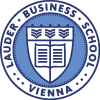Principal Investigators: Prof. (FH) Dr. Elisabeth Kübler (Head of the team), Prof. (FH) Mag. (FH) Roksela Miha (Professor and researcher), Prof. (FH) Mag. (FH) Martin Samek (Professor and researcher)
Sponsor: Magistratsabteilung 23 der Stadt Wien (Wirtschaft, Arbeit und Statistik)
Duration of the project: October 2011 – March 2014
Contact: [email protected]
The Mobiliversity project engaged with diversity-induced conflicts arising from the transnational mobility of students, academic staff and researchers. This unfolded against the backdrop of increasing highly skilled migration, which is both desired by the business sector and stipulated by government policies. By offering English-language degree programs in business administration, Lauder Business School (LBS) is recruiting students from over 40 different countries as well as an international faculty.
In doing so, LBS must permanently confront diversity-related challenges in teaching routines and management procedures. Following the guiding principle of employability, we aim to prepare LBS students for professional careers in the international/intercultural environment of Austrian corporate businesses, non-profit organizations, and the entrepreneurial sector.
The project’s approach to diversity can be described as reflexive, self-critical, appreciative and solution-oriented.
Applied research
The first project stage was dedicated to an exploratory study (focus groups) of LBS students, in order to uncover their diversity experiences on three levels: (a) their studies at LBS (the microcosm), (b) the urban space of Vienna (the mesocosm), and (c) in interacting with Austrian authorities (the macrocosm). Subsequently, selected members of the faculty and from the academic and executive administration staff were invited to in-depth interviews, in which they reported their experiences on LBS’s intercultural campus and on how they perceived challenges typically faced by students.
Moreover, an increasing number of students opted to scrutinize the subject of diversity in more depth as part of their bachelor and master theses. The Mobiliversity team members tendered numerous Mobiliversity-related topics for master theses every year.
Video: Roman Domnich (IML 2010), produced in 2012 as part of his master thesis.
Workshops
Based on the generated data and on best-practice examples of comparable institutions, the team designed a series of workshops, which have in the meantime been attended by LBS students, lecturers and administrators. All newly entering students have been invited to a one-evening Welcoming Diversity Workshop taking place at the beginning of each academic year. In addition, the Spring Diversity Workshops stretched over four evenings (three workshop sessions and a concluding event) in the months of May and June. They sought to reach out to volunteering students from all cohorts wishing to reflect more thoroughly on diversity issues.
The workshops did not merely address diversity-related conflicts but also proffered a participatory platform to devise solutions. Particular emphasis was placed on the moderation between intercultural diversity and (perceived) norms of the surrounding host society. At the conclusion of the first workshop cycle, evaluation interviews with participants were conducted. Moreover, expert members of the LBS faculty reviewed the workshop concept in a group discussion.
An overview of the workshop concept and its objectives can be downloaded here.
Dissemination
The Mobiliversity team used different channels to inform the LBS community and external partners on its progress. Initially, the periodical Variety Fair, containing a main essay, student contributions, book reviews and various updates, was published approximately three times a year, and circulated in print and electronically. On a regular basis, the Mobiliversity Blog showcased the team members’ experiences with and thoughts on diversity.
In the final project phase, the blog was transformed into a dynamic information and reflection tool for current and prospective LBS students, faculty and staff. This product combined elements of a handbook with visual features including the Variety Fair texts.
Transfer to teaching and institutional management
The relations between the project on one hand, and taught courses and higher education management on the other are bi-directional. All Mobiliversity team members have lectured, supervised bachelor and master theses, and engaged in curricular development both during the project and beyond. They not only transferred insights and findings from the project to the above-mentioned activities, but also collected incidents of diversity challenges presented by LBS students and fellow lecturers. With the accrued expertise, the project collaborators have since been proactively engaged in academic decision-making and have regularly been involved with LBS’s executive management in diversity matters.
The topics raised by the Mobiliversity project sparked the interest of other stakeholders, and have led to various project collaborations. For example, the Mobiliversity team supervised the Roadmap to Austria and projects on Tourism Product Development for an Ethno-religious Segment, The Impact of Diversity on Learnings Style Preferences, and Lingua franca’s impact upon approaches to conflict management. Furthermore, it has contributed to the survey Mobility of Students at Lauder Business School and MODUL University Vienna, and has developed the New to Vienna Glossary to facilitate the students’ arrival in and initial adaption to life at LBS and in Austria. Moreover, the project has launched partnerships with corporate partners and academic institutions in Austria as well as internationally.
Gender and diversity management
A constructive approach to diversity (particularly cultural diversity) and gender were at the core of the project idea. What is more, any measure taken as part of or induced by the project was assessed according to the 4R method: Who is represented? Which resources are allocated to whom, and why? Does the measure take into account someone’s life really, and even improve it? What are project participants’ legal rights and entitlements? The continuous reflection as to how gender and diversity shape action helped redress gender- and diversity-related misrepresentations on the part of the project team, the LBS students, and the institution as such. The career development of the Mobiliversity team members was tailored to their specific life circumstances in terms of gender, legal status in Austria, family situation, cultural self-identification, and age.
Long-term benefits for LBS
The Mobiliversity project has multiple outcomes in the following areas:
Welcoming phase: One of the major findings of the applied research was the necessity to provide a smoother welcoming phase to newly entering students at all degree levels. Hence, every newcomer receives a New to Vienna Glossary in the welcome package and takes part in a Welcoming Diversity Workshop. Moreover, LBS invested in providing more structured consultation on the interaction with Austrian authorities and service providers.
Long-term integration in Austria: The academic degrees were streamlined in order to increase the students’ awareness in terms of cultural diversity and, at the same time, to raise their prospects of long-term integration on the highly-skilled labor market in Austria after graduation. Offering intensive German language training is a crucial asset in this respect.
Institutional development: The project has inspired profound reforms in many institutional domains, such as curricular development, monitoring of teaching activities, admissions, internationalization, and quality management. Mobiliversity has not only considerably developed the former project members’ careers as they continue to work in the above-mentioned areas, but sustainably improved campus life. As such, it has also enhanced the attractiveness of LBS as an institution of higher learning, as an employer, and as a partner for other stakeholders from academia, business, and government in Vienna and beyond.
In July 2015 a scientific committee conducted a full-day on-site evaluation of the Mobiliversity project. Prof. Dr. Klaus Beck, Chair of Business Education at the renowned Johannes Gutenberg University of Mainz, headed the evaluation committee. It further comprised representatives of the project sponsoring agency, namely the MA 23 of the City of Vienna. The evaluators comprehensively investigated all project components, such as applied research, the Diversity Workshops, publishing activities, and sustainable benefits for the curriculum as well as LBS’s institutional development. The process included interviews with the project collaborators, the Executive Manager and the Directors of Studies as well as, most significantly, students and alumni from all degree programs. Moreover, they thoroughly inspected all written project documentation.
In the concluding statement of his evaluation report, Professor Beck states that, without any doubt the Mobiliversity project had a great impact on LBS and brought about widely accepted results. It benefited from the unanimous consent that this endeavor was not only welcome but actually had compelling objectives. The core objectives of improving diversity management and alleviating diversity-related discords were accomplished.” Professor Beck encourages LBS to further strengthen its exceptional intercultural profile in all curricula. By way of conclusion, the evaluation committee points out the students’ unequivocal appreciation of the Mobiliversity project.
LBS profoundly benefited from this external evaluation and Professor Beck’s instructive expertise. It will continue its efforts to effectively manage a highly international learning and working environment in order to prepare its students for globally competitive careers.


Recent Comments